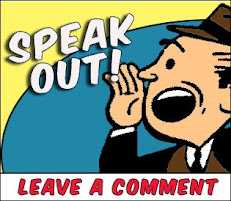To help the poor, let's stop idolizing the rich
10/15/08
"Worst of all is the rich politician who 'suffers' for the common man."
Taylor Caldwell, Answer as a Man (1980)
I don't have anything against rich people -- heck, some of my friends are rich people. They'd be even better friends if they'd share the wealth with me a little more, but for some reason most rich people don't like to do that.
What I do resent is the widespread assumption that rich people -- particularly those who inherited wealth, like George W. Bush or John McCain -- make better leaders.
The only thing we know for sure about the very wealthy is that at some point in history, they or one of their ancestors was in the position of and of the temperament to take advantage of their fellow man's labor or natural resources.
 By and large, they are rewarded for this behavior with lives of luxury, the best academic and vocational choices for their children, secure retirements, and general approbation.
By and large, they are rewarded for this behavior with lives of luxury, the best academic and vocational choices for their children, secure retirements, and general approbation.But let's not keep handing them the keys to the country. There's no doubt that richest 1% of Americans (who currently hold wealth worth $16.8 trillion) know what kind of leadership is good for them. But there's no evidence that they know what's good for the other 99% of us.
Or, as Barbie Snodgrass of Columbus, OH told George Packer, author of a recent New Yorker article titled "The Hardest Vote: The disaffection of Ohio’s working class":
“Someone who makes two hundred or three hundred thousand a year, who eats a regular meal, who doesn’t have to struggle, who doesn’t worry if the lights are going to be turned out—if he doesn’t walk in your shoes, he can’t understand.”Today, on Blog Action Day, more than 10,000 sites are blogging about poverty, but I find I can't write about poverty without also writing about wealth and privilege.
 It may seem petty to skewer McCain for his inability to remember how many homes or cars he owns or the outfit that Cindy McCain wore at the Republican convention, which Vanity Fair estimated cost between $299,100 and $313,100 -- more than the cost of the average American home, which costs $266,000.
It may seem petty to skewer McCain for his inability to remember how many homes or cars he owns or the outfit that Cindy McCain wore at the Republican convention, which Vanity Fair estimated cost between $299,100 and $313,100 -- more than the cost of the average American home, which costs $266,000.But it's very relevant. If poverty and fiscal restraint are merely academic concepts for you -- if you have no visceral experience of living on a budget, delaying purchases, juggling bill payments, bouncing checks, or not being able to afford to give your children things you'd like them to have -- then you only understand one side of the dynamics of economic power in America.
Poverty is really a lack of power -- not just economic, but also political, physical, and social -- and the least powerful suffer the most: children. Among the 21 most affluent nations, the United States has the highest percentage of children living in poverty. Our rate is more than double that of the country next in line.
Average, ordinary guys
 The insult added the injury of politics has got to be rhetorical posturing of rich politicians who pretend to be average Joes. Remember George H.W. Bush's well-publicized love of pork rinds?? This was a man who, as a presidential candidate in 1987 or so, had never seen a grocery store scanner before.
The insult added the injury of politics has got to be rhetorical posturing of rich politicians who pretend to be average Joes. Remember George H.W. Bush's well-publicized love of pork rinds?? This was a man who, as a presidential candidate in 1987 or so, had never seen a grocery store scanner before.John McCain: "Celebrities don't have to worry about family budgets. But we sure do."
 We? We? John McCain's net worth is is $40.4 million, not including Cindy's estimated worth of $100 million (she won't share her tax returns because "she's not a candidate.") The Obamas net worth is $1.3 million, most of it book royalties earned in the past year.
We? We? John McCain's net worth is is $40.4 million, not including Cindy's estimated worth of $100 million (she won't share her tax returns because "she's not a candidate.") The Obamas net worth is $1.3 million, most of it book royalties earned in the past year.Sarah Palin: "I know what Americans are going through. Todd and I, heck, we're going through that right now even as we speak, which may put me again kind of on the outs of those Washington elite who don't like the idea of just an everyday working class American running for such an office."The Palin's combined income of nearly a quarter-million dollars last year was five times the median household income for Wasilla's 7,000 residents. They own a single-engine plane, two boats, two personal watercraft and a half-million-dollar, custom-built home on a lake that is worth three times the average of other homes in town.
"If you're pulling in a quarter-mil, own a plane and two boats, and live in a half-million-dollar, custom-built lake house, don't have the audacity to call yourself "an everyday working class American," and then whine about the condescension of the "Washington elite," writes Steve Benen.
Technorati tags:






1 comments:
On this topic, see Jared Bernstein's "Again W/ the Trickle Down?!" on HuffPost. It begins, "If your only tool is a hammer, everything looks like a nail."
To wit:
"The good number crunchers at the Tax Policy Center examined who would benefit from the McCain proposal [say that the] the middle fifth of families end up with all of 0.2% of the benefits. That's not a typo. The tax break would lower their annual tax bill by $4.00. OK, that is a gallon of gas, but it's not what you'd call a game-changer.
"The top 20% end up with 98.3% of the benefits of the cut, and the top 1%, with income above $600,000 get 75% of the gains, for an average benefit of $37,600. The average tax savings for the top 0.1%--income above $3 mil--is $244,000. In other words, this isn't a recipe for helping families hurt by the financial crisis and the recession. It's a recipe for more income inequality."
Post a Comment